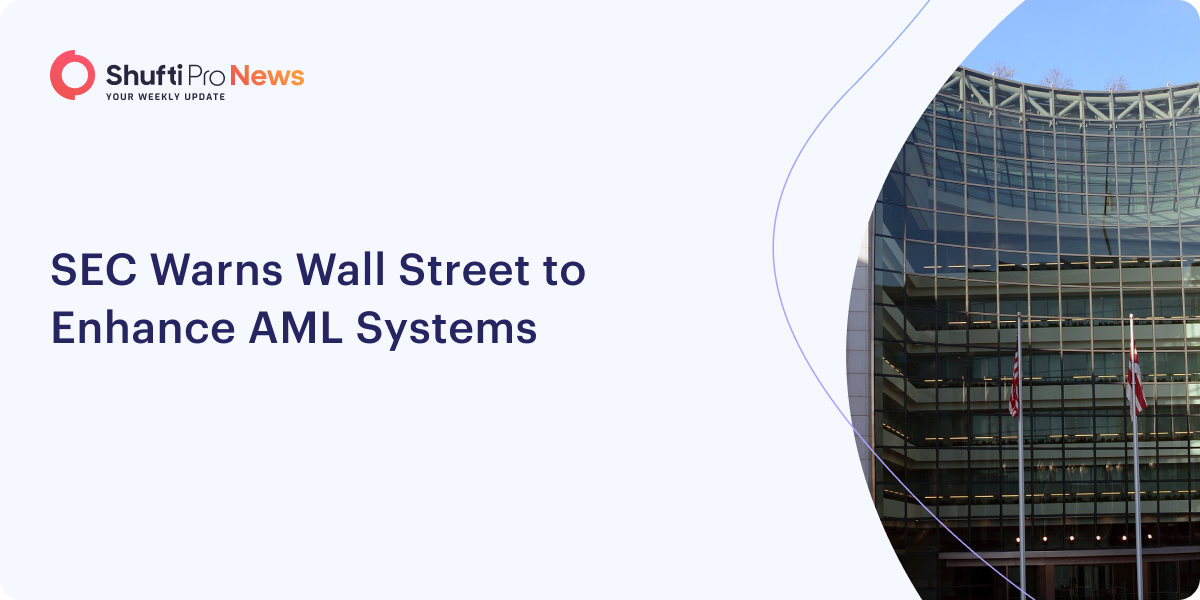SEC Warns Wall Street to Enhance AML Systems

US regulatory authority, the Security and Exchange Commission (SEC), warns Wall Street brokers of several loopholes in their anti-money laundering controls, which should be strengthened to combat illicit money flows.
Security Exchange Commission (SEC) is the independent authority of the US federal government established after the Wall Street crash of 1929. The SEC is responsible for enforcing the law against financial manipulation, combating dirty money, and suspicious transactions in the market. SEC examiners issued an alert this week regarding some Wall Street brokers, stating that they had observed that some firms need to put more effort into their anti-money laundering (AML) programmes. Although they did not name any firms, they emphasise that some firms are not following the regulations and policies designed to curb money laundering.
According to US laws, banks and financial institutions must meet rigid regulations to stop the flow of illicit funds. For years, the SEC has enforced fines on firms that do not comply with its regulations in order to strengthen the position of brokers.
In July, Merill Lynch was fined $6M by the SEC for not reporting 1,500 suspicious activities they had over more than a year. Under the US AML regulations, it is a must for financial institutes to file any suspicious activity of the client on the Financial Crimes Enforcement Network (FinCEN).
During the on-site review of Wall Street brokers conducted by the SEC examiners, they noted several flaws in their anti-money laundering programmes. They stated, “Some broker-dealers weren’t conducting timely testing of their anti-money-laundering controls or keeping documentation to show they had conducted such testing, according to the regulator. Independent testing of the programmes also was inadequate, and some haven’t been updating their training materials to reflect changes to anti-money-laundering laws or couldn’t demonstrate that their employees had taken the appropriate training.”
US Treasury Department regulations have been updated to require financial institutions to verify the beneficial owners and legal entities behind the business. However, the SEC unit alleges that many brokers need to follow the rules and attest to the information they provide to new clients.
Suggested Reads:
THE US SECURITIES AND EXCHANGE COMMISSION IDENTIFIES AML FAILURES OF US BROKERAGE FIRMS
AMERICANS LOSE $3.82 BILLION TO CRYPTO AND ‘PHANTOM PROPERTY’ INVESTMENT SCAM

 Explore Now
Explore Now













